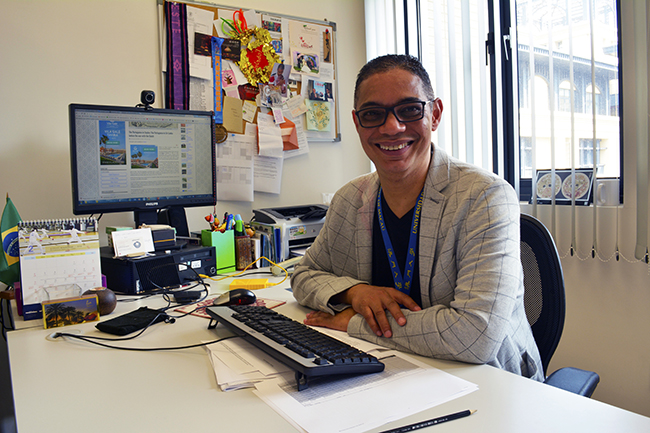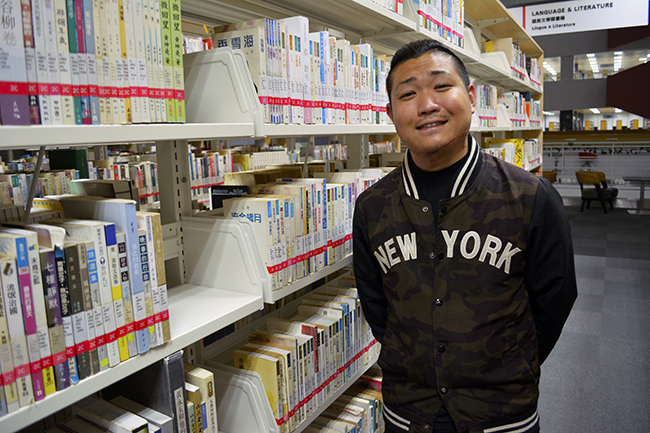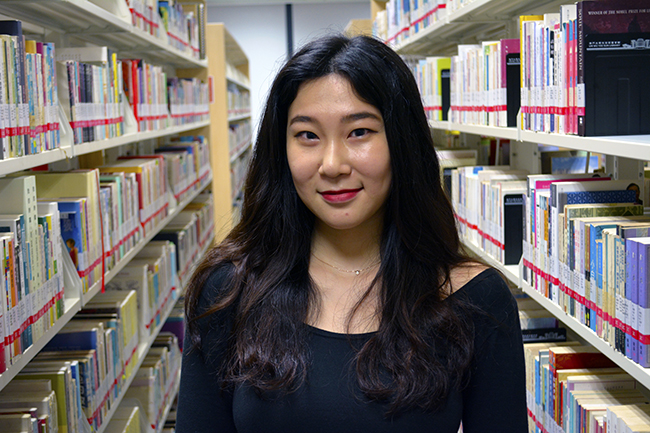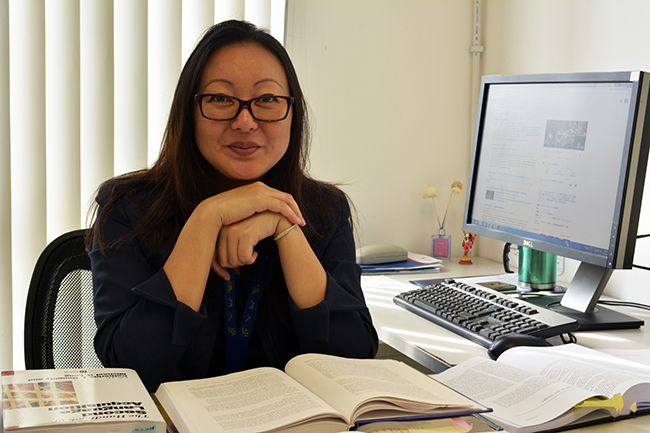In Macau, there are not only Chinses have focused on learning Portuguese, but also other foreigners, with the Portuguese culture contact here, who come to Macao and begin to learn and explore this language.
In addition to the growing number of Portuguese language courses at the higher education level, there are still many non-degree courses available in Macau for who wants to learn Portuguese. The last edition of the Portuguese Language Summer Course at the University of Macau (UM), for example, brought together more than 450 students from all over the world, including students from South Korea, Japan, the United States and even Moldavia.
With the Portuguese language contact in Macao, learning for foreign students goes beyond the classroom. These are very valuable benefits for students since here exist possibilities for interaction, knowledge and discoveries about Portuguese culture and Macanese culture, says Roberval Teixeira e Silva, a professor of UM Department of Portuguese. "What these Asian students meet in Macao is a possibility to interact and experience Portuguese-speaking cultures, especially Portuguese and Macanese culture," he says.
He adds that: "According to his experience, in fact, students have the possibility of interacting with people from all Portuguese-speaking countries and regions," which attracts more students and it is a reason for who chooses Macao as a study destination.
Mini courses held every summer at UM, that create opportunities for more students to visit Macao and study the language for a month or more. Students of different nationalities have been participated, which demonstrates the position of Macao as the centre of Portuguese language teaching in Asia. "There is a lot of interest from students from other Asian countries. Admitted students usually are Koreans, Japanese, Vietnamese, Timorese or Indians, for example, "says Roberval Teixeira e Silva.
The professor also points out that there are also Japanese students who, spend one or two semesters in Macao to attend regular undergraduate courses with scholarships given in their country of origin. This is the case of Gabriel Naomichi, 21 years old, who says that he chose to study Portuguese in Macao with aims of returning to his country with a greater cultural background and then pursue a degree in Portuguese.
The fact of having an entire structure in Portuguese that was essential for Gabriel choosing Macao. "At my university in Japan, I only had one Portuguese class per week, but here I can even have 10 classes if I want." One of the positive reasons of studying in the MSAR is also being able to practice the language, which I am studying, with Portuguese speakers in the city. "I can speak Portuguese with many people in Macao, which makes me have a lot of contact with this language."
Before coming to Macao, Gabriel spent a short time (three weeks) in Portugal, which helped him to confirm his choice of Portuguese as a working language. "Most of Japanese do not speak Portuguese, but I do, so I feel that I am different with others," he adds that his goal is to apply for jobs in the diplomatic field.
Natália Jisook-Jung is a 20-year-old South Korean. She came to Macao to attend UM Summer Course and was in the first year of her bachelor’s degree in foreign languages in her native country. Her experience in Macau was well, hence Natália gave up her studies in Korea and pursue the Portuguese learning more seriously in Macao. She enrolled in the Bachelor of Portuguese Studies and she has the main objective to work as a translator or flight attendant when she returns to Seoul.
Although there are three universities in South Korean that offer the bachelor’s degree in Portuguese, Natália felt that Macao would have more intense contact with the language. "Since there are many Portuguese speakers here, I have many opportunities to practice Portuguese, which was not happening in Korea. So this was a very good decision, "she says.
Choice for natives
Miriam Akiyama was born in Brazil, a granddaughter of Japanese. Her family emigrated to the South American country in the 1940s. She grew up in a small Japanese community in São Paulo State and the first words that came out of her mouth were in Japanese. Being bilingual given the intense contact with both the Japanese and Brazilian communities, and with much support from her family. "My parents always communicated with me in Portuguese, but it was necessary for me to express myself in two languages depending on the situation," she says.
The curiosity for the Portuguese language began only in the times in which it was to study the degree in foreign languages English-Portuguese in Brazil. "Before, the grammar and literature classes were very dull for me at school," she says with a laugh. "Only when I was taking my degree that I started to love the Portuguese language. When I was learning more English, I have loved Portuguese more. "
Miriam left Brazil a few years ago and moved to Japan with her family. Despite the distance, the Portuguese language continued to be part of her plans, so she began to cultivate the idea of enrolling in a master’s degree in linguistics, a discipline that changed the way she looked at Portuguese. "In 2014 I came to Macao to attend a language conference. I gave a presentation about the Portuguese language in Japan, and I was impressed by the teachers that I met here. Since I lived in Japan and Macao is very close to my home, I decided to come here after this first contact ", explained the reasons that made her to be a master student in Portuguese linguistics at the University of Macau.
The choice of Macao never doubted. "I really like Macao, especially as it is such a unique place in Asia. A place with Eastern and Western cultures and immigrants from other countries, which makes it so unique. It’s a great place for those who study and research Portuguese-based pidgins and creoles in Asia. "Soon, Miriam intends to return to Japan and teach one of the languages that stole her heart.
Source & Photos: Revista MACAU




